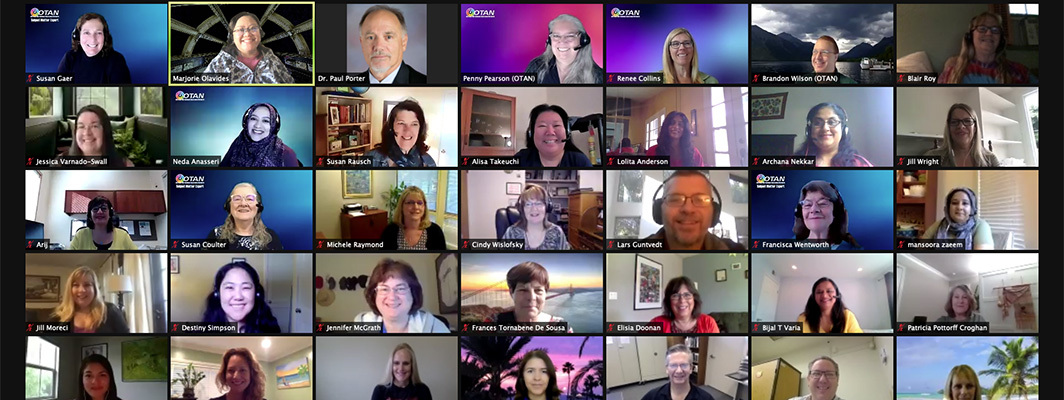
July 15, 2021 | By Cindy Wislofsky
I have been extremely fortunate to be a part of OTAN’s Digital Leadership Academy (DLAC), first as a participant in 2016, and now as a coach to mentor other adult educators in meeting their program goals. DLAC is a two-year targeted professional development program that started in 2016, where providers participate as collaborative teams of both faculty and administrators. DLAC teams such as the Corona-Norco Unified School District acquire leadership, mentoring, and technology skills as they design and implement a technology project applicable to the goals of their particular program. Team projects have included creating a digital repository for sharing effective teaching resources; making how-to video tutorials so learners will be better prepared for using online programs like Blackboard, Canvas, and Zoom; transitioning high school diploma students from a packet-based program to an online learning program; and strategies for increasing enrollment in hybrid CTE classes. Each team is also assigned a coach for brainstorming, guidance, and networking.
Participating as a DLAC team member five years ago and now serving as a coach gives me a unique perspective. What have I learned? I have five main takeaways:
Our two remarkable DLAC coordinators, Neda Anasseri and Penny Pearson, model expert mentoring and coaching with the use of digital tools such as Flipgrid and Padlet. They invite top-notch trainers that inspire and engage teams as they complete assignments, learn leadership techniques, share ideas, and develop more confidence with technology. Plus, we have a lot of fun too!
OTAN provides outstanding resources, in-person trainings, and live webinars for adult educators up and down the most populous state in the country and beyond, meeting the needs of adult education teachers and students in the digital age. To learn more about professional development offerings, check out OTAN’s annual technology conference that offers dynamic presentations and hands-on skill development for technology integration in the adult education classroom.
By Lauren McMahon and Heather Dowd